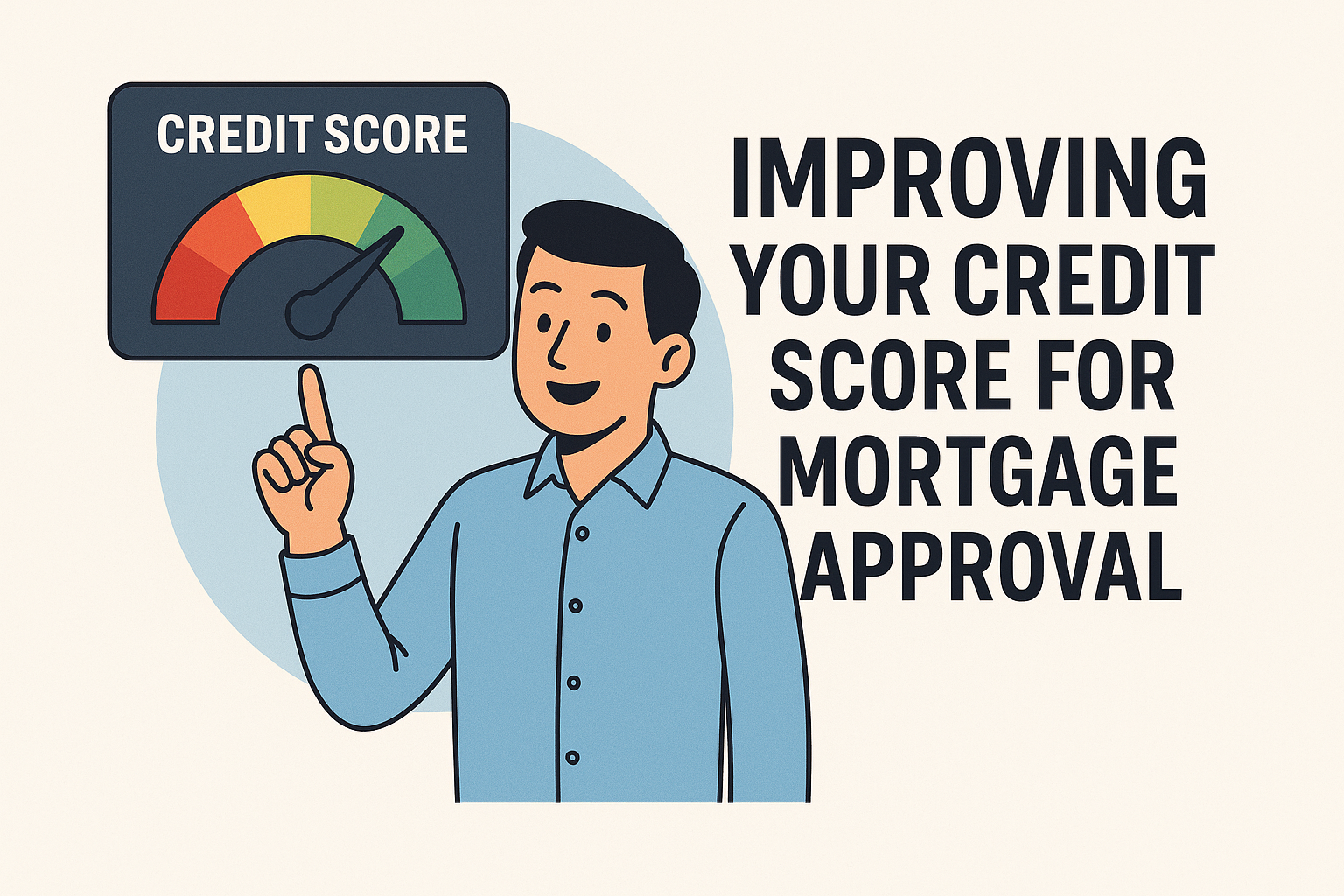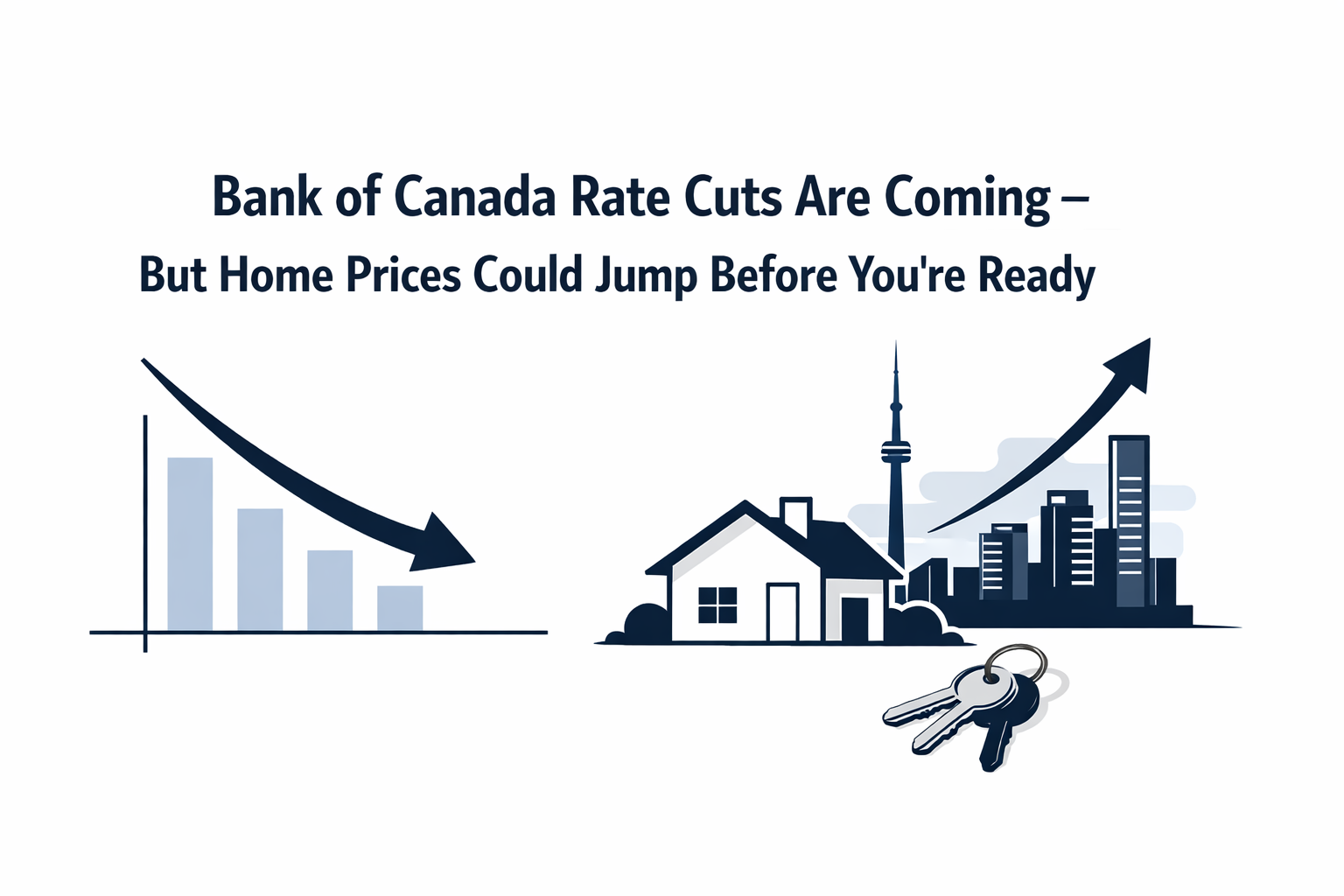Improving Your Credit Score for Mortgage Approval

Improving Your Credit Score for Mortgage Approval
Securing a mortgage with a great interest rate depends heavily on one thing: your credit score.
The better your score, the more favorable your loan terms, the lower your monthly payments, and the more buying power you’ll have.
If you want the best mortgage options available, you need to prioritize boosting your credit score before you apply.
Here’s exactly how to do it — fast, efficiently, and smartly.
Understand What Impacts Your Credit Score
Before you start improving your credit, it’s crucial to understand what actually drives your score.
Here’s the breakdown:
- Payment History (35%)
Paying bills on time is the single most important factor. - Credit Utilization (30%)
How much of your available credit you’re using. Lower utilization = higher score. - Length of Credit History (15%)
Longer credit history helps lenders trust your financial habits. - Credit Mix (10%)
Having different types of credit (credit cards, car loans, lines of credit) can boost your score. - New Credit Inquiries (10%)
Each time you apply for new credit, a hard inquiry slightly dings your score.
Key takeaway:
Focus most of your efforts on payment history and credit utilization — they account for 65% of your score!
Step 1: Pay Bills on Time, Every Time
Late payments are credit score killers.
Missing even one payment can cause a 50–100 point drop.
Action Plan:
- Set up automatic payments for at least the minimum due.
- Use calendar reminders for due dates.
- If you do miss a payment, call the creditor immediately — sometimes they’ll waive reporting it to bureaus if you act fast.
Consistency is key.
Nothing improves your score faster than six months of perfect payments.
Step 2: Reduce Your Credit Utilization Ratio
Credit utilization refers to how much of your available credit you’re using.
Keeping balances low shows lenders you manage debt responsibly.
Goal:
- Stay under 30% utilization across all accounts.
- For optimal impact, aim for under 10%.
Example:
- If your total available credit is $10,000, try to keep your balances under $1,000.
Tip:
Pay down your cards before the statement date (not just the due date) — that’s when utilization gets reported to credit bureaus.
Step 3: Avoid New Credit Applications
Every time you apply for a new credit card, loan, or financing plan, a hard inquiry hits your report — temporarily lowering your score.
In the 6 months before applying for a mortgage:
- Avoid opening new credit accounts
- Hold off on car loans, furniture financing, etc.
- Focus on stability, not expansion
Remember:
Too many inquiries can make you look desperate for credit, which spooks lenders.
Step 4: Maintain Older Accounts
Credit history length matters.
The longer you’ve managed credit responsibly, the higher your score.
Mistake to Avoid:
- Closing your oldest credit card, even if you rarely use it.
- Instead, keep older cards open with occasional small charges.
Pro Tip:
Put a small subscription (like Netflix) on your old card and set it to autopay monthly to keep it active.
Step 5: Dispute Errors on Your Credit Report
Credit reporting errors are more common than you think — and they cost real points!
Action Steps:
- Get your free credit reports from Equifax and TransUnion.
- Review for:
- Incorrect balances
- Accounts you don’t recognize
- Wrong payment statuses
If you find errors:
- File disputes immediately through the credit bureau websites.
- Provide supporting documents if available.
Impact:
Removing one negative error could boost your score by 20–50 points or more.
Step 6: Increase Your Credit Limits
One quick trick to lower your utilization ratio (without paying off debt) is to ask for a credit limit increase.
Example:
If you have a $5,000 limit and owe $1,500 (30% utilization), increasing your limit to $10,000 drops you to 15% utilization — a big score boost!
Warning:
- Don’t use the new credit.
- Only request increases from accounts you’ve handled responsibly.
How Long Does It Take to See Improvement?
You can start seeing credit score improvements within 30–90 days if you:
- Lower your balances
- Make consistent on-time payments
- Remove any errors
Building major improvements (100+ points)?
That typically takes 6–12 months of consistent positive behavior.
Special Tips for Mortgage Applicants
If you’re preparing to buy a home:
- Don’t close old accounts, even if they’re unused.
- Keep all credit card balances below 30% (10% ideally).
- Hold off on large purchases (cars, furniture) until after your mortgage closes.
- Avoid switching jobs just before applying — lenders like income stability.
Every small credit move you make right now matters for your mortgage approval.
Final Thoughts
Improving your credit score is one of the smartest, highest-ROI financial moves you can make before buying a home.
It unlocks lower mortgage rates, bigger buying power, and stronger negotiating leverage with lenders.
Start early, stay consistent, and you’ll be in the best position possible when you find your dream home.
📞 Want personalized advice on boosting your credit score before applying for a mortgage? Call Garry Sidhu today at 437-961-0004 and let's build your mortgage success story together!



